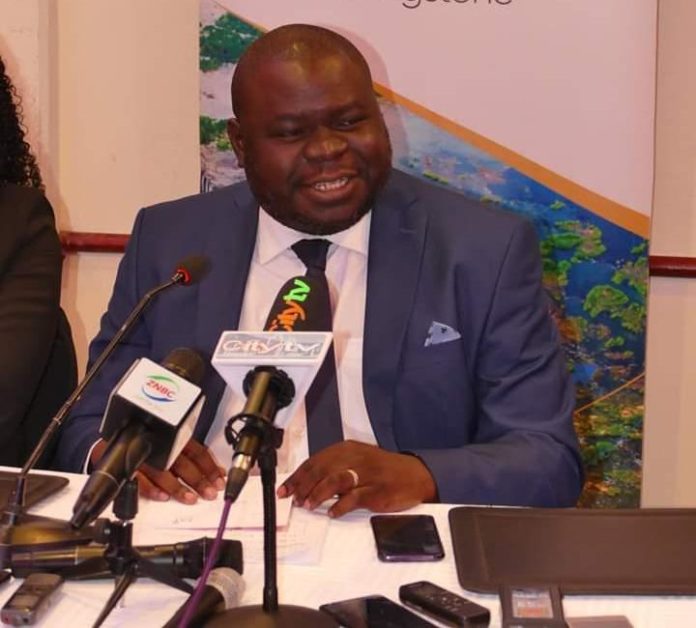Last month, the United Nations released their World Population Prospects report – predicting that the global population could increase by 2 billion people in the next 30 years. And within this, sub-Saharan Africa will experience a 99% increase.
It’s no wonder then that African leaders are beginning to question how they will be able to power this expanding population. This was the driving force behind the recent, and first ever co-hosted summit between The International Energy Agency and the African Union Commission (AUC), titled “The Future of Africa’s Energy”.
Vera Songwe, Executive Secretary of the Economic Commission for Africa (ECA) was a strong voice in the discussion, highlighting the need for Africa to use effective policies to address and, importantly, to close this ever-widening energy gap. While some touted that the conference was a reflection of the IEA’s expansion in the region, it should also be seen as an indicator that calculating energy shortages is firmly on the radar of African politicians.
And so it should be. The growth of the middle class, urban sprawl, climate change effects, and calls for increased trade, such as the African Continental Free Trade Area (AFCFTA), all equal growth in energy demands.
This is a topic that hits close to home for me. For as long as I can remember, Zambia has experienced extended periods of power cuts due to energy shortages. Earlier this year, electricity-supply restrictions were implemented following one of the worst droughts on record, which meant water levels at our hydropower dams plummeted. I assume that most citizens in the Western developed world haven’t experienced at length how power cuts can impact every aspect of their life – which is why this issue is so politicised in Africa.
But rather than politically capitalising on energy supplying weaknesses, African politicians should be looking at innovative, bold, and fundamentally collaborative, solutions to these daunting forecasts. Step one is realising that we cannot overcome these obstacles alone. The region is no foreigner to external support – but in this instance, it does not need to come in the form of aid, but rather, partnerships.
Africa has the potential to power its energy demands, expanding populations and all, if it considers and enters intelligent joint ventures (JVs). Why capitalise on the short-term political gain of the issue, when you can collaborate to find a real, sustainable and long-term solution? There are endless examples and case-studies that highlight just how successful this approach can be.
Ask OCI, a producer and distributor of natural gas-based fertilizers and chemicals, who last month entered into a JV with the Abu Dhabi National Oil Company (ADNOC) – creating the world’s largest exporter of nitrogen fertilizer, as well as the largest producer in the Middle East and North Africa region.
And the CEOs of both companies were quick to highlight the worth of their collaboration. OCI CEO and Egyptian billionaire Nassef Sawiris accurately stated that: “This is an industry that is not very proud that we can’t achieve high single-digits return on capital employed. We have to do something to improve the returns and one is consolidate our various manufacturing platforms, pool them together and be able to serve our customers along multiple geographic regions”.
Meanwhile, for ADNOC, this is just the latest step in their strategy for expanding their downstream portfolio. CEO and UAE Minister of State, Sultan Ahmed Al Jaber, said in a statement that “pooling assets and capabilities is a value enhancing step for both companies, allowing us to leapfrog competitors to become the top nitrogen export platform globally. It will also enable us to access new markets, benefiting both existing and new customers.”
Ultimately, both partners are benefiting from this JV, as are their African clients.
So how can Africa replicate this success? Well, as simple as it may sound, essential to forming any JV is a meeting place. This is why it’s so important to have representatives from Africa attend international energy events that put partnerships at the forefront – such as ADIPEC, the Abu Dhabi International Petroleum Exhibition & Conference – which last year fittingly called on the industry to embrace the energy challenges of the Fourth Industrial Revolution through their launch of “Oil & Gas 4.0”. Facilitating JVs and promoting collaborative solutions to complex global problems is core to their mission, as is the case for most influential conferences around the world, from the World Economic Forum to the UN General Assembly. We must use global gatherings to be honest about our collective future challenges, rather than as opportunities for one up-manship.
In 2019, politics and business doesn’t always need to be zero sum. As the world’s population rapidly increases, it will be even more crucial that we band together in search of the most effective answers to our newest crises. We must steer African politicians away from the norm of politicising energy deficiencies, towards dialogue and collaboration, if we are to sustainably tackle the region’s widening energy gap.
Dr Lubinda Haabazoka is the President of the Economics Association of Zambia

